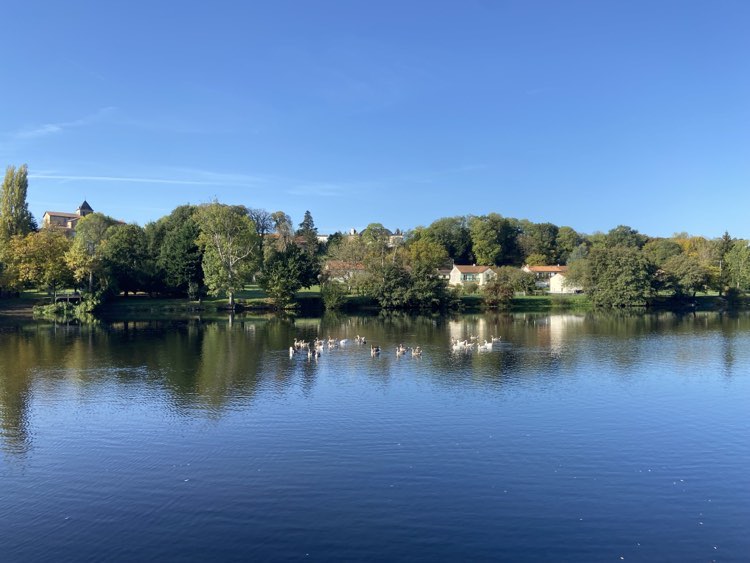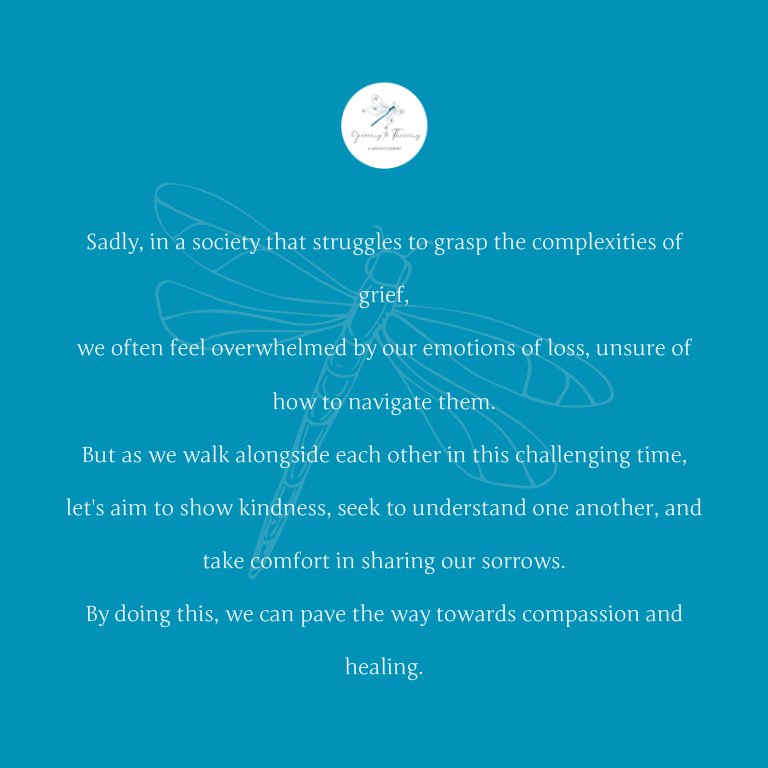The Unseen Journey of a Widow: Navigating Loss in a Grief Illiterate Society.
The widow's experience shows how educating society on grief could profoundly impact the grief journey of those experiencing loss.
LIVING THE LOSS
Moraig Minns
3/21/20246 min read
Introduction
As I mark the solemn occasion of the second anniversary of my husband's passing due to cancer, my heart is heavy with both sorrow and reflection. For 18 enduring months, I stood steadfastly by his side, tending to his needs amidst the relentless challenges imposed by the COVID-19 pandemic. Yet, despite time, there remains a prevalent misconception that I should have somehow moved on and be over my grief by now. However, the stark truth remains: the loss of a beloved spouse leaves an indelible mark upon the soul, one that cannot simply be erased or forgotten. Instead, it becomes a part of who we are, shaping our journey forward as we learn to grow around and alongside our grief through determination and perseverance.
In our society, grief is tragically misunderstood and grievously overlooked, leaving widows and widowers to navigate the labyrinthine depths of their sorrow alone. We inhabit a culture ill-equipped to comprehend the profound depths of pain and the enduring nature of the healing process. This profound lack of understanding and support only serves to compound the already arduous journey of a widow or widower, leaving them feeling isolated and adrift amidst a sea of well-meaning but misguided expectations.
One of the most disheartening facets of this journey is the discord encountered within the realm of friends and family. Though often well-intentioned, they may unwittingly invalidate the profoundness of our grief or expect us to "move on" within a predetermined timeframe. However, grief is a force that knows no linear timeline. It is an intensely personal and profoundly individual experience that defies the constraints of societal expectations. Each person's journey through grief is as unique as their fingerprint; loved ones must recognise and honor this sacred truth with compassion and empathy, providing a beacon of support and understanding in our darkest hours.
The Myth of "Moving On"
As someone who has gone through the difficult journey of grief after losing my husband, I can say with certainty that the idea of 'moving on' from such a profound loss is not realistic. Grief doesn't have an expiration date or a neat timeline; it becomes a part of who we are, shaping our thoughts and emotions long after the initial shock has passed.
I used to believe that if I kept myself busy and distracted, I could outrun my grief. But no matter how hard I tried to escape, it was always there, waiting to resurface when I least expected it. I've learned that instead of trying to move on, it's essential to move through grief – to acknowledge and accept it as a natural part of the healing process. To lean into it and feel all the feelings and the pain they bring.
I've found moments of joy and connection amidst the sorrow by embracing my emotions and allowing myself to feel the pain. I know that the journey of grief is long and challenging, but I take comfort in the love and support of those who have walked this path before me.
Let's not buy into the misconception that we can move on from grief. Instead, let's face it with courage and compassion, remembering and honouring our loved ones in everything we do.
The Importance of Grief Literacy
Grief literacy goes beyond just knowing the stages of grief or recognising common symptoms of bereavement; it's about truly understanding how grief can show up and impact every part of our lives. My journey as a widow has taught me this, and I feel compelled to share what I've learned with the world in hopes of increasing awareness around grief.
A crucial part of grief literacy is acknowledging that each person's grieving process is unique and deeply personal. What works for one person may not work for another, and that's okay. This realisation has empowered me to embrace my journey without comparing it to others or feeling pressured to fit into societal norms. I've learned to honour all my emotions—whether sadness, anger or even moments of unexpected joy—knowing they are all valid parts of my healing process.
Understanding the holistic nature of grief is also crucial. I didn't fully grasp before how grief can manifest not just emotionally but also physically, psychologically, and spiritually. As I've navigated my grief, I've come to see the interconnectedness of mind, body, and spirit in the healing process. This awareness has helped me prioritise self-care and seek resources supporting my well-being.
Additionally, grief literacy is essential for debunking myths and misconceptions about grief. As a widow, I've encountered well-meaning but misguided advice from loved ones urging me to "move on" or "find closure" before I was ready. Educating myself about the reality of grief – that it's messy, nonlinear, and has no timeline – has empowered me to advocate for myself and set boundaries with others, ultimately protecting my emotional health in the process.
Finding Support and Connection
As a new widow, it can feel overwhelming to seek out support, but it is so essential as you navigate through the difficult journey of loss. After losing your beloved partner, the world may seem like a lonely and isolating place, but finding support systems can bring you comfort, understanding, and a sense of belonging during this challenging time.
At the start, lean on your friends and family for support. They know your partner and can offer a familiar presence and the emotional support needed most. Opening up to them about your feelings and experiences can help lighten the weight of grief and make you feel more connected and understood. Remember, it's okay to let go of those who can't support you right now—they return later.
Consider joining a widow support group to connect with others going through a similar experience. These groups provide a safe space to share feelings, receive empathy, and feel less alone in your grief. Whether in person or online, these groups offer a sense of community that can be incredibly comforting.
Therapy or counselling can also be a helpful resource as you navigate the complexities of grief. A therapist can offer guidance, validation, and coping strategies to help you process your emotions and move through the mourning process. It's okay to wait until the initial shock of grief has lessened before starting therapy.
Embracing Self-Care and Healing
For me, self-care started by acknowledging how much I was hurting and permitting myself to grieve fully. I allowed myself to feel all the emotions without holding back. Whether writing in a journal, taking walks in nature, listening to podcasts, or connecting with other widows online, I made space for my grief and let it be heard and respected.
As I navigated through the waves of sorrow, I discovered the importance of caring for my physical, emotional, and spiritual well-being. I learned to be kind and compassionate to myself, doing activities that brought me comfort and peace—like yoga, knitting, online puzzles, and colouring books. These things helped calm my mind and give me a break from the constant thoughts.
Self-care also meant looking after my physical health by eating well, getting enough rest, and staying active. I realised that taking care of my body was crucial for healing and gave me the strength to face the challenges ahead. Eating healthy as a widow can be tricky, but finding ways to make it work is essential for your well-being. I struggled with this, too, but eventually found online resources for cooking for one and challenged myself to have at least one nutritious meal a day.
In addition to caring for myself, I found comfort in connecting with others who understood my pain and could offer support and empathy. Joining widow support groups online and talking to friends and family who were there for me helped me feel less alone on this journey.
But perhaps the most potent part of self-care and healing as a widow was rediscovering a sense of purpose and meaning in my life. I learned that while the pain of loss never completely goes away, it is possible to find joy, fulfilment, and hope even amid grief.
Through self-care, I learned to honour my late partner's memory while also embracing the present and looking towards a future filled with possibilities. I found strength in knowing that healing isn't a straight line but a journey with highs and lows, setbacks and successes.
As I continue to walk this path of self-care and healing, I remind myself that grief has changed me but doesn't define me. I am a survivor, a warrior of love, and through self-care, I am reclaiming my life and finding light even in the darkest times.
Conclusion
In conclusion, being a widow can be incredibly challenging but also presents opportunities for personal growth and strength. It's important to remember that everyone's journey through grief is unique, and there is no set timeline for healing. In a society that may not always understand the depth of our pain, widows must seek support, educate others about grief, and prioritise self-care.
As we continue to navigate our grief, let's work towards creating a more compassionate and understanding community that supports widows and widowers. Together, we can make a safe space where grief is acknowledged, heard, and embraced with love and compassion.


The Vienne River


